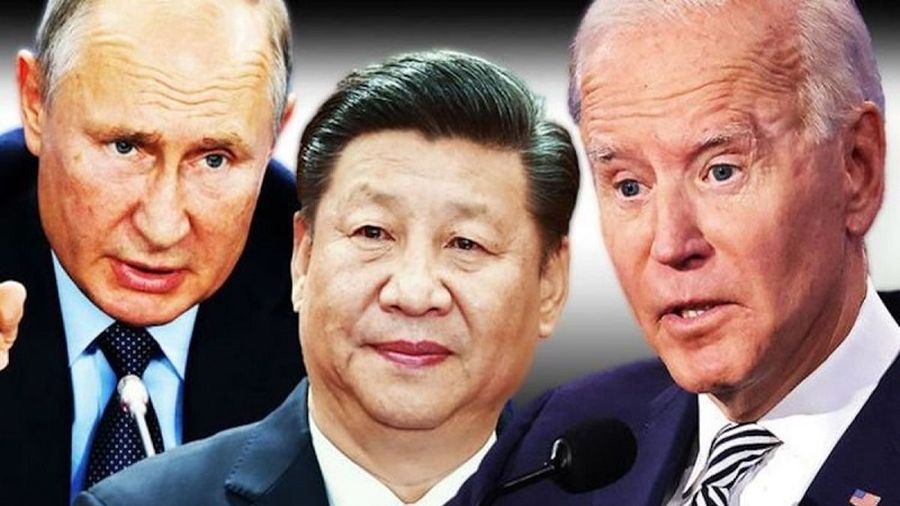China’s Stance Towards the European Missile Crisis Is Pragmatic
The People’s Republic shrewdly avoids taking sides in any dispute, instead always calling on all parties to behave responsibly and reminding everyone of international law. That’s precisely what it did with respect to the undeclared US-provoked missile crisis in Europe.
Those members of the Alt-Media Community (AMC) who fantasize about a so-called “alliance” between Russia and China might have been very disappointed by Beijing’s pragmatic stance towards the undeclared US–provoked missile crisis in Europe. Instead of solidly taking Russia’s side, Chinese Foreign Minister Wang Yi declared that “We call on all parties to stay calm and refrain from doing things that agitate tensions and hype up the crisis…The new Minsk agreement, which was approved by the Security Council, is a fundamental political document recognized by all parties and should be effectively implemented.” This position requires some further clarification in order to be better appreciated.
China and Russia are extremely close strategic partners who treat one another as equals and with respect. They are not, however, “allies” like some have fantasized. Former Russian President and current Deputy Chairman of the Security Council Dmitry Medvedev recently reaffirmed that during a far-reaching interview with TASS. According to him, “We have no military alliance with the People’s Republic of China, and no one is striving for that.” This is an accurate depiction of their relations since neither is willing to have their soldiers fight, sacrifice, and potentially even die for the other on the opposite side of Eurasia.
The author explained why more at length in his answer to the third question that he was recently asked in an interview with Italian media that can be read in full here. The point is that nobody should have expected China to outright take Russia’s side since the two aren’t “allies” but close strategic partners. Furthermore, such false expectations speak to one’s inaccurate understanding of contemporary Chinese diplomacy. The People’s Republic shrewdly avoids taking sides in any dispute, instead always calling on all parties to behave responsibly and reminding everyone of international law. That’s precisely what it did with respect to the undeclared US-provoked missile crisis in Europe.
It also deserves mentioning that China has extremely close ties with Ukraine despite a US-provoked multibillion-dollar investment scandal from last year. The author also elaborated on this in detail in a recent analysis that can be read here. Giving off the perception of taking Russia’s side in this larger issue could have made Ukraine and others regard China as a partisan player and therefore an unreliable investment partner. The People’s Republic wants to avoid giving off such optics at all costs. The last thing that it needs is more US-led Western Mainstream Media weaponized information warfare narratives attempting to drive wedges between China and its many Belt & Road Initiative (BRI) partners.
There’s some more relevant insight that should also be shared with the reader in order to improve their understanding of the Russian-Chinese Strategic Partnership. Contrary to their false perceptions fed to them by Alt-Media demagogues over the years who exploit their wishful thinking political fantasies, Moscow also doesn’t fully take Beijing’s side in regional disputes either. For instance, the Eurasian Great Power fully supports India’s stance towards Kashmir, especially its August 2019 revocation of Article 370 that resulted in New Delhi reaffirming its territorial claims to Chinese-controlled Aksai Chin. The Russian Ambassador to India even said that his country’s views are “almost 100% identical to India’s.”
The same can be said about the South China Sea. In a move that surprised even the most enthusiastic supporters of Russian-Vietnamese relations, their reaffirmed strategic partnership pact that was agreed to in early December during the visit of the Southeast Asian country’s president to Moscow referred to the United Nations Convention on the Law of the Sea (UNCLOS) a total of three times. This was done in spite of China disagreeing with that global body’s decision a few years back in support of the Philippines’ territorial claims. About that country, Russia is even selling the BrahMos supersonic cruise missiles that it jointly produced with India to the Philippines despite it being in a fierce territorial dispute with China.
These are objectively existing and easily verifiable political realities that are nevertheless “narratively inconvenient” for those in the AMC who falsely claim that Russia and China are “allies”. They’re not, never have been, nor have any desire to be. They’re just very close strategic partners. This means that nobody should expect one to take the other’s side in regional disputes, especially when doing so would harm their image as a neutral partner there like China supporting Russia would do in Central & Eastern Europe (CEE) or Russia supporting China would do in Southeast Asia. China’s stance towards the crisis in Europe and Russia’s towards the South China Sea are therefore equally pragmatic.







